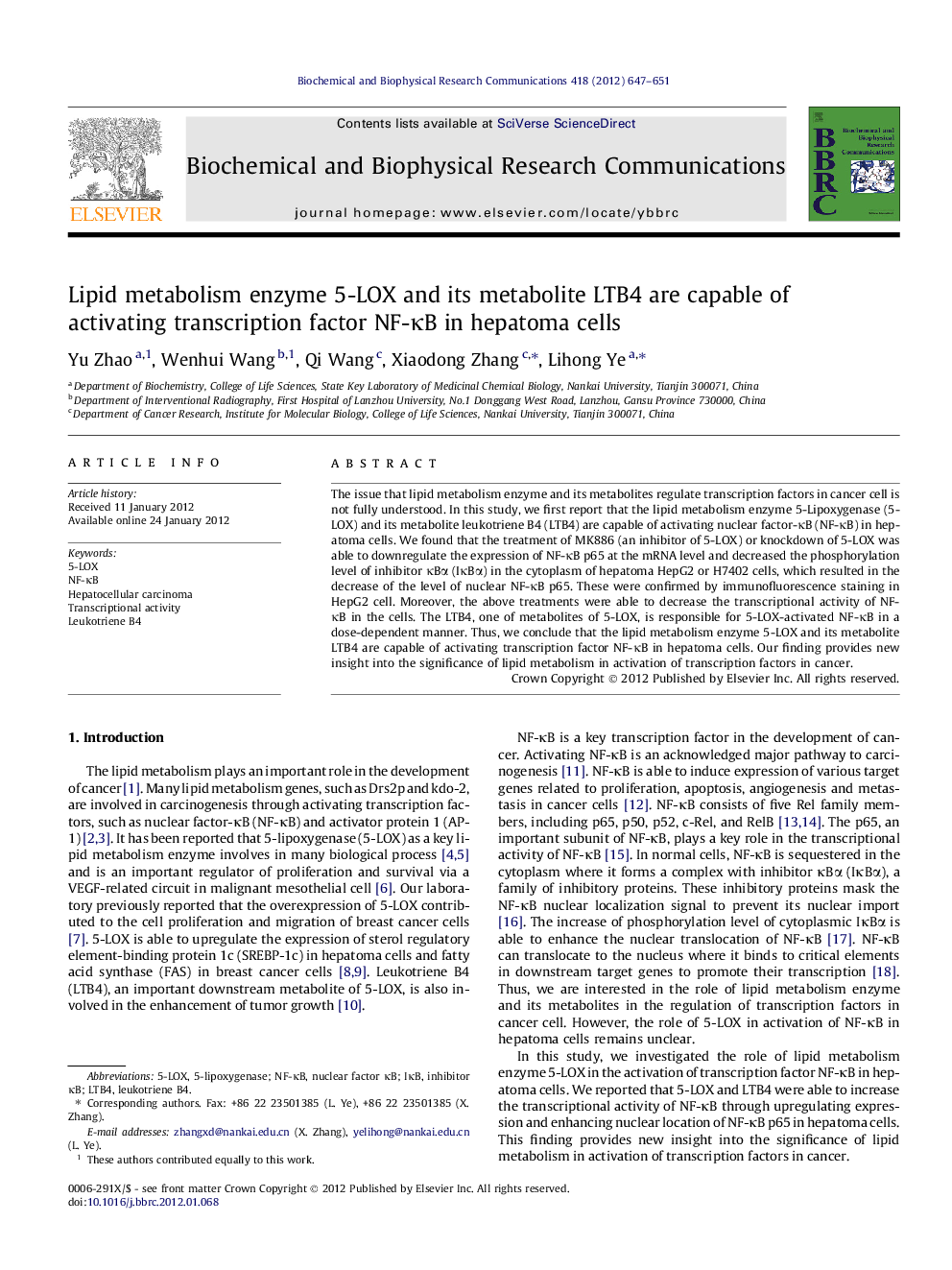| Article ID | Journal | Published Year | Pages | File Type |
|---|---|---|---|---|
| 1929888 | Biochemical and Biophysical Research Communications | 2012 | 5 Pages |
The issue that lipid metabolism enzyme and its metabolites regulate transcription factors in cancer cell is not fully understood. In this study, we first report that the lipid metabolism enzyme 5-Lipoxygenase (5-LOX) and its metabolite leukotriene B4 (LTB4) are capable of activating nuclear factor-κB (NF-κB) in hepatoma cells. We found that the treatment of MK886 (an inhibitor of 5-LOX) or knockdown of 5-LOX was able to downregulate the expression of NF-κB p65 at the mRNA level and decreased the phosphorylation level of inhibitor κBα (IκBα) in the cytoplasm of hepatoma HepG2 or H7402 cells, which resulted in the decrease of the level of nuclear NF-κB p65. These were confirmed by immunofluorescence staining in HepG2 cell. Moreover, the above treatments were able to decrease the transcriptional activity of NF-κB in the cells. The LTB4, one of metabolites of 5-LOX, is responsible for 5-LOX-activated NF-κB in a dose-dependent manner. Thus, we conclude that the lipid metabolism enzyme 5-LOX and its metabolite LTB4 are capable of activating transcription factor NF-κB in hepatoma cells. Our finding provides new insight into the significance of lipid metabolism in activation of transcription factors in cancer.
► 5-LOX is able to upregulate expression of NF-κB p65. ► 5-LOX enhances nuclear translocation of NF-κB p65 via increasing p-IκB-α level. ► 5-LOX stimulates transcriptional activity of NF-κB in hepatoma cells. ► LTB4 activates transcriptional activity of NF-κB in hepatoma cells.
